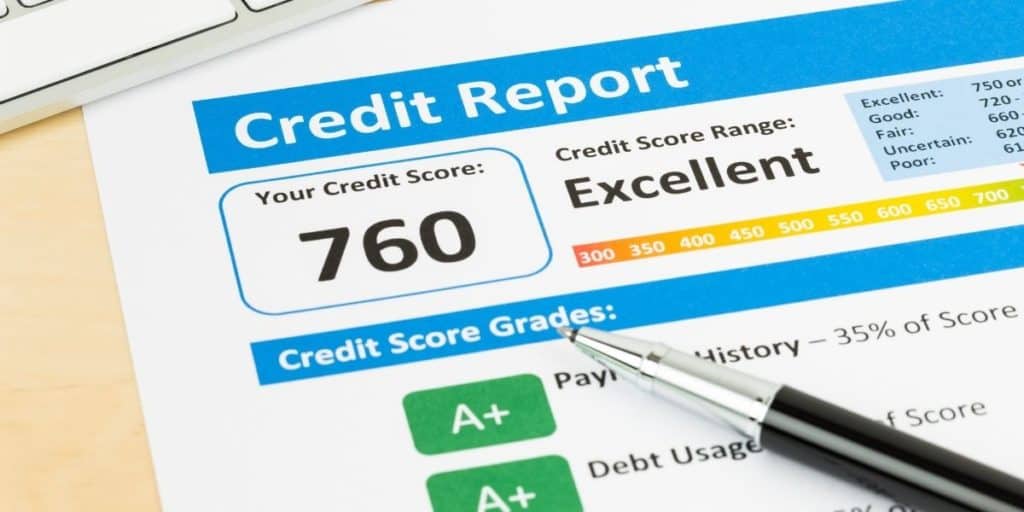Buying a home can be a great way to build wealth over time and set your family up for financial success. Unfortunately, it can also be incredibly stressful, especially if you’re unsure about your own financial situation going into the process. If you’re hoping to get approved for a mortgage, it’s a good idea to understand how a 401k loan can affect your likelihood.
A 401k loan doesn’t affect getting approved for a mortgage, and your credit does not suffer for it. If you’re taking out a 401k loan in the hopes of making your down payment, however, you should first weigh the pros and cons of this decision.
Withdrawing money from your 401k is a huge decision and should not be taken lightly. In this article, I’ll be addressing how a 401k loan affects your chances of getting a mortgage, as well as the pros and cons of taking out a loan for your down payment, so let’s get started.
IMPORTANT SIDENOTE: I surveyed 1500+ traders to understand how social trading impacted their trading outcomes. The results shocked my belief system! Read my latest article: ‘Exploring Social Trading: Community, Profit, and Collaboration’ for my in-depth findings through the data collected from this survey!
Table of Contents
How a 401k Loan Affects Credit?
Have you already saved enough money to potentially put down money on a new house? Congratulations! While reviewing everything that could possibly stand in the way of your home-ownership dreams, however, you wonder how your 401k loan could affect your chances of getting approved.

A 401k loan does not affect your credit score in any way.
Because this loan is taken on the money you already own, it doesn’t require actually pulling from your own credit history. It is essential that when taking another loan, however, you consider your ability to pay on both at the same time.
Can I Use a 401k Loan To Buy My House?
Let’s imagine a different scenario. You’ve done the math, and you feel that you might have a better possibility of getting approved for a mortgage if you chip away on the upfront cost with a substantial down payment.
Unless your 401k is near completion, it is unlikely that you will be able to use your 401k to purchase a house. It might be possible to take a smaller loan from your 401k to make a down payment, but after examining the pros and cons, you may decide against this as well.
Read on to find out the pros and cons of taking a loan on your 401k to buy a house or place a down payment on your potential home.
Pros
Possibility of Lower Interest Rate
If you have a low credit score, you know how badly that can hurt many of your chances at moving up in the world.
A low credit score, whether it is due to excessive student loan debt or just a terrible shopping habit, is a sign to lenders that you might not be the most dependable person when it comes to paying back your debt.
Because your 401k account manager is pulling this loan from the money you already technically have, he is likely to approve you for a much lower interest rate than a bank might for a personal loan.
According to the investment company institute, 19% of people eligible to take a 401k loan have other loans pulling at their credit score. With facts like these, it’s not hard to see why someone might be tempted to pull money from their retirement account.
Interest Is Paid Back Into Your Account
When you take a loan from a bank, all interest that you pay on that loan goes to the bank itself. If you were to pull that same money from your 401k account, all the interest you pay goes back into the account itself. Put this way, it’s like you are essentially paying yourself for this loan.
Relatively Easy To Do
When you take a loan from a bank or money lender, you are usually on the hook for explaining why you need that money. From that point forward, the bank has the option to say whether or not they think that your need is a good investment for its money.
Taking a loan from your 401k account is relatively more straightforward.
Annually, eleven million Americans pull from their 401k account for a variety of reasons, including financial emergencies and paying down high-interest debt. What’s more, 90% of major employers approve these loans.
Cons
Missing on Compounded Interest
While a big part of your retirement savings is made up of money you’ve invested, a hefty percentage of your entire retirement is made up of interest you’ve earned on that money over time. For every dollar you take from your 401k, you are missing out on years worth of compounding interest.
By taking out money from your retirement, you are taking it directly out of investment opportunities. Without proper investment, your retirement account will not grow nearly as quickly or reliably.
Double Taxation
Your retirement account was intended as a long-term savings account. The money you invest into it is taken from your paycheck before income taxes are removed, but those taxes will eventually be taken when you pull that money back out.
Ideally, this will be during retirement, when you are considered a member of the lowest taxable bracket. However, in the case of 401K withdrawal, you are taking this money out early. Therefore, you’ll owe taxes based on the income bracket you currently fall into, which is likely far higher.
Similarly, in the case of a 401K loan, you will be repaying the loan principal with your post-tax dollars, and you’ll also be taxed on the interest you charge yourself. This process is known as double taxation, and while it may seem unfair, it is entirely possible and legal.
Tied to Your Job
When you take a loan from your 401k account, you are typically given around five years to pay this back. In most cases, this isn’t any problem, but it can quickly become one if you find yourself unemployed.
Regardless of whether or not you quit your job on the spot, provided advance notice, or were terminated, you are responsible for paying back that loan. Not only that, but you’re responsible for paying that loan back far quicker than you may have expected.
Even if you don’t plan on quitting your job, you never know when tragedy demands it. When that day comes, the last thing you want to be thinking of is how much of a financial loss this loan will create.
Hardship Withdrawals
There is another option to taking out a personal loan or pulling money from your 401k the usual way, which is frequently known as a hardship withdrawal.
The IRS will reduce the usual fees associated with early withdrawals if you can prove that the reason behind your withdrawal is valid. To qualify for an early withdrawal, you’ll also need the approval of your employer.
Reasons for withdrawal include:
- Educational funding
- Buying or repairing a home
- Threat of eviction
- Burial expenses
It’s important to remember that, while this exists as an option for home purchase, it is not a loan, but a permanent withdrawal. By taking this money out, you entirely remove it from your retirement account with no intention of paying it back.

Author’s Recommendations: Top Trading and Investment Resources To Consider
Before concluding this article, I wanted to share few trading and investment resources that I have vetted, with the help of 50+ consistently profitable traders, for you. I am confident that you will greatly benefit in your trading journey by considering one or more of these resources.
- Roadmap to Becoming a Consistently Profitable Trader: I surveyed 5000+ traders (and interviewed 50+ profitable traders) to create the best possible step by step trading guide for you. Read my article: ‘7 Proven Steps To Profitable Trading’ to learn about my findings from surveying 5000+ traders, and to learn how these learnings can be leveraged to your advantage.
- Best Broker For Trading Success: I reviewed 15+ brokers and discussed my findings with 50+ consistently profitable traders. Post all that assessment, the best all round broker that our collective minds picked was M1 Finance. If you are looking to open a brokerage account, choose M1 Finance. You just cannot go wrong with it! Click Here To Sign Up for M1 Finance Today!
- Best Trading Courses You Can Take For Free (or at extremely low cost): I reviewed 30+ trading courses to recommend you the best resource, and found Trading Strategies in Emerging Markets Specialization on Coursera to beat every other course on the market. Plus, if you complete this course within 7 days, it will cost you nothing and will be absolutely free! Click Here To Sign Up Today! (If you don’t find this course valuable, you can cancel anytime within the 7 days trial period and pay nothing.)
- Best Passive Investment Platform For Exponential (Potentially) Returns: By enabling passive investments into a Bitcoin ETF, Acorns gives you the best opportunity to make exponential returns on your passive investments. Plus, Acorns is currently offering a $15 bonus for simply singing up to their platform – so that is one opportunity you don’t want to miss! (assuming you are interested in this platform). Click Here To Get $15 Bonus By Signing Up For Acorns Today! (It will take you less than 5 mins to sign up, and it is totally worth it.)
Conclusion
When it comes to 401k loans, they can be a mixed bag. Though they won’t affect your credit in any way, they still come with some hidden disadvantages that might be enough to dissuade someone from taking them in the first place.
That being said, these loans do offer certain advantages that make them desirable for a significant portion of Americans. Before deciding what you plan on doing with your 401k, it can be helpful to know all the facts and possibly consult a financial advisor.
BEFORE YOU GO: Don’t forget to check out my latest article – ‘Exploring Social Trading: Community, Profit, and Collaboration’. I surveyed 1500+ traders to identify the impact social trading can have on your trading performance, and shared all my findings in this article. No matter where you are in your trading journey today, I am confident that you will find this article helpful!
Affiliate Disclosure: We participate in several affiliate programs and may be compensated if you make a purchase using our referral link, at no additional cost to you. You can, however, trust the integrity of our recommendation. Affiliate programs exist even for products that we are not recommending. We only choose to recommend you the products that we actually believe in.
Recent Posts
Exploring Social Trading: Community, Profit, and Collaboration
Have you ever wondered about the potential of social trading? Well, that curiosity led me on a fascinating journey of surveying over 1500 traders. The aim? To understand if being part of a trading...
Ah, wine investment! A tantalizing topic that piques the curiosity of many. A complex, yet alluring world where passions and profits intertwine. But, is it a good idea? In this article, we'll uncork...
